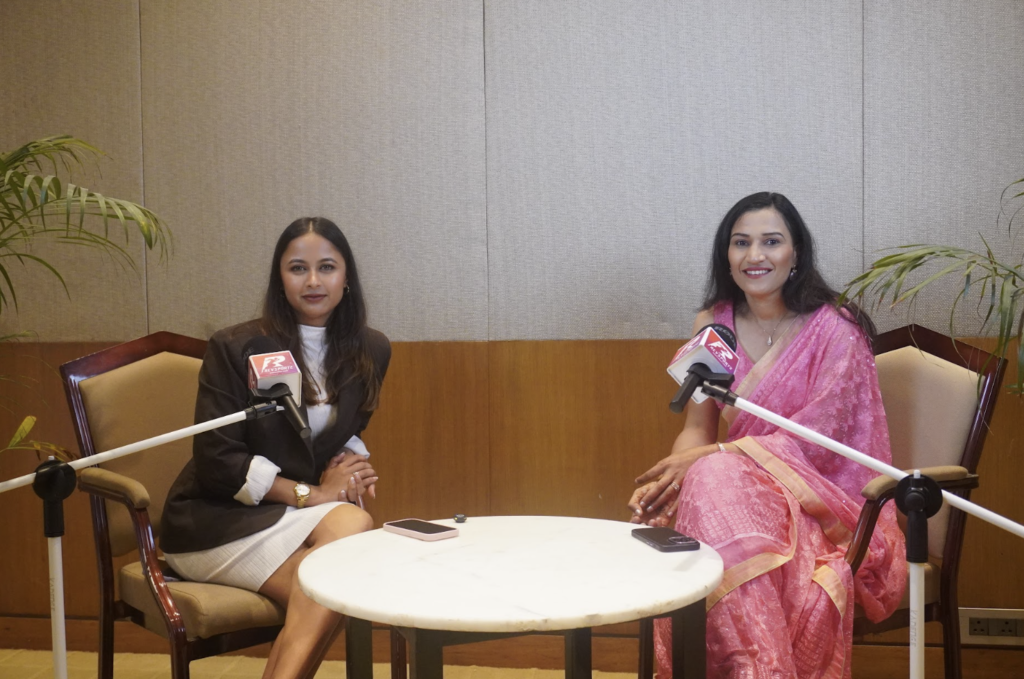
There are certain stories, certain interactions that will always stay with you, and a ten-minute conversation with Rani Rampal proved to be one of the most impactful ones that I have had in my life. All because of how raw, real and honest it was. From broken beginnings to unshakeable resolve, born in mud and dust, a dream held together not by luck but by sheer grit and determination. Rani’s story is about a young girl who once watched women play hockey in Kurukshetra and thought: “Maybe if I play, I could change my life, or I will die in the same poverty I was born in.”
“When I was seven, I started playing hockey in Kurukshetra,” Rani told me. “It was the best academy for women hockey players. There were so many athletes to look up to, so I was never short on inspiration. I never thought I would be able to get to this level but sometimes it’s destiny.”
Destiny. But also determination. Her childhood was a test of survival.
“My childhood wasn’t as great,” said Rani. “We went through so much poverty. My father was a cart-puller. When we had our first meal of the day, the second wouldn’t be guaranteed. There was so much struggle and challenge, but the determination to do something in life was stronger than all of that.”
For her, hockey wasn’t just a sport—it was escape, ambition, rebellion, and hope rolled into one.
“When I would watch the women play in my academy, I would think: ‘maybe if I play, I could change my life or else I would die in the same poverty that I was born in’. Hockey was the only way to get out of poverty.
“It was a difficult journey, there were good times and there were bad. But you learn from your failures more than you will ever learn from your wins.”
And perhaps, one of the hardest lessons to learn as an athlete—or in life—is how to forgive yourself.
“We all are humans, and we learn from making mistakes, but we also have to remember to move on from the mistake,” said Rani. “Sometimes, we get stuck on the mistake. You start blaming yourself, doubting yourself, then you criticise yourself. The mistake might not even be as grave as you make it in your own head. You are not fighting with anyone, you are fighting with yourself.
“You only learn how to accept mistakes and learn from them as you grow older, be it sports or life. It’s okay to make mistakes, and it’s a part of life. The mistake is not as important as what you learn from it. Mistakes are only a problem if you don’t learn from them. How you react to a mistake is what defines your character.”
That mindset is shaped by sport. On the field, you don’t have time to sulk. You move on. You recover, and you fight back.
“In hockey, if you lose out on a goal, you can’t stand still and dwell on it,” said Rani. “You don’t have the time. You have to come back stronger. That is the biggest learning from hockey.”
While Rani achieved all that a player can dream of in her career as an athlete, she continues her growth as a coach. She is committed to changing the narrative for younger athletes, giving them the space, freedom and wisdom she didn’t have.
“It’s really challenging in the beginning,” she told me. “I used to get frustrated when athletes wouldn’t do things my way, but I realised some things in life are only learnt by making mistakes and gaining experience. That’s how we learnt too. I can’t expect a 20-year-old athlete to have the experience of a 30-year-old. And it makes me think: ‘Why didn’t I give myself the same grace when I was an athlete?’ I was very harsh on myself.
“I tell my athletes all the time: ‘Don’t be afraid of making mistakes. Because if you play with the fear of making mistakes, you will never be fearless. I don’t care what mistakes you make, what matters to me is how you react to it.”
Maybe a lot of us need to hear this from one of the country’s leading athletes. That being fearless is never about being unafraid, but doing something despite the fear. It is never about being perfect, but about how you take on challenges, especially when things get tough.



